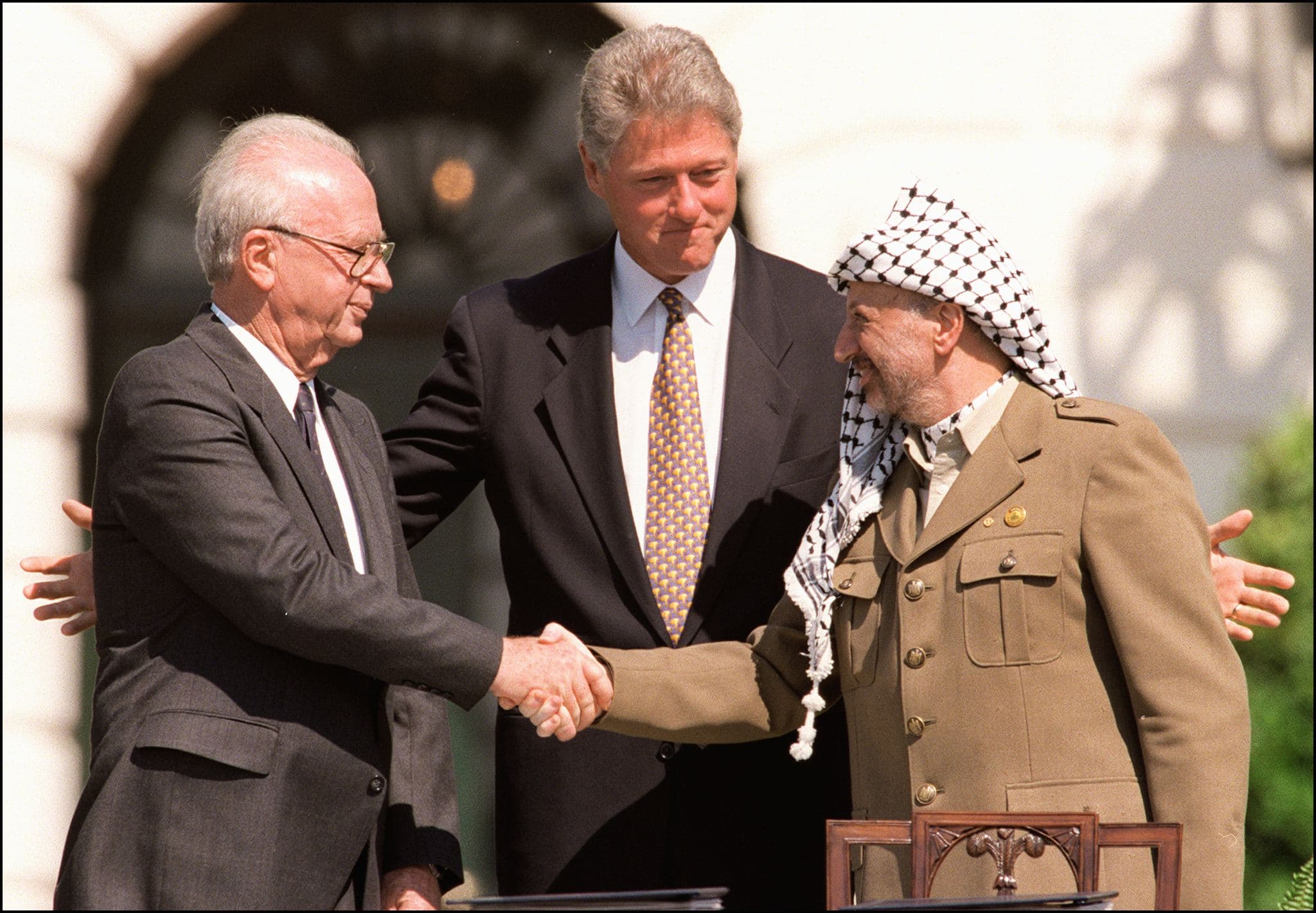Clinton Recalls 2000 Palestinian State Offer: "96-97% of West Bank" Rejected

Former U.S. President Bill Clinton stated in 2016 that he "killed myself to give the Palestinians a state," revealing details of a peace deal he believed would have granted them "all of Gaza, between 96%-97% of the West Bank, compensating land in Israel." Clinton's remarks, made during a campaign event, resurfaced in a recent tweet by Eyal Yakoby, highlighting the enduring debate surrounding the failed Israeli-Palestinian negotiations of the early 2000s.
The offer, known as the "Clinton Parameters," was presented in December 2000, following the inconclusive Camp David Summit. It proposed a Palestinian state encompassing 94-96% of the West Bank and the entire Gaza Strip, with a 1-3% land swap from Israel. Key provisions included a divided Jerusalem, with Arab neighborhoods under Palestinian sovereignty and Jewish areas under Israeli control, and a resolution for Palestinian refugees primarily involving return to the new Palestinian state and financial compensation, with limited return to Israel based on humanitarian grounds.
Both Israeli Prime Minister Ehud Barak and Palestinian Authority Chairman Yasser Arafat reportedly accepted the parameters "with reservations." However, Clinton and his negotiating team, including Dennis Ross, maintained that Israel's reservations were "within" the framework, while the Palestinian objections were "outside" it, effectively constituting a rejection. Palestinian concerns centered on the lack of full sovereignty over East Jerusalem, particularly the Haram al-Sharif (Temple Mount), the absence of an unlimited "right of return" for refugees to their original homes in Israel, and issues of territorial contiguity within the proposed state.
Critics and some Palestinian negotiators argued that the offer did not meet their fundamental demands for a truly sovereign and contiguous state, and that the process itself was flawed. They cited the immense pressure on Arafat from the Arab world and his own people regarding core issues like Jerusalem and refugee rights. Clinton's 2016 statement reiterated his perspective that a significant opportunity for statehood was presented and subsequently declined by the Palestinian leadership.